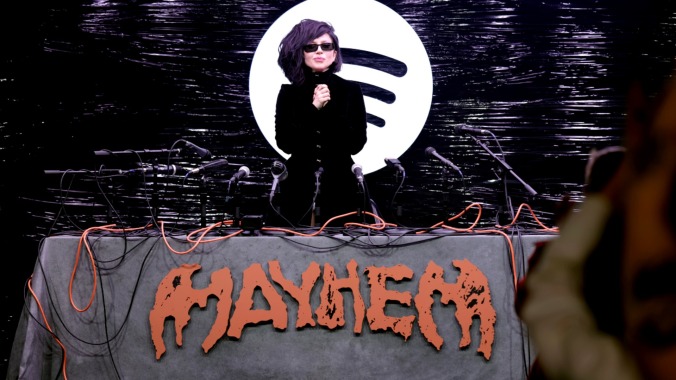Mother Monster Makes ‘Mayhem’ Look Good
I hate to say it, but thank you, Michael Polansky.
Photo: Getty Images EntertainmentMusic
Let it be clear that I don’t enjoy lauding a man—least of all, in these times. But after the release of Mayhem, Lady Gaga’s sublime seventh solo studio album, I fear it must be said: Thank you, Michael Polansky.
Now, before anyone confuses my gratitude for undue glory, let me explain. It’s long been reported that Mother Monster’s fiancé (who served as a co-writer and producer on the album) has been among her biggest fans when it comes to her early pop music. In an interview with Vogue last year, Gaga credited Polansky with encouraging her to return to her roots.
“He was like, ‘Babe. I love you. You need to make pop music,'” she recalled. “On the Chromatica tour, I saw a fire in her,” Polansky added. “I wanted to help her keep that alive all the time and just start making music that made her happy.” Well, whatever he did worked, because after memorable (some more than others) forays into a myriad of genres—from jazz to blues rock to electronic—in recent years, Mayhem seems a reminder that Gaga will always be, first and foremost, a pop icon. And critics agree. “Lady Gaga’s ‘Mayhem’ is more than just a return to her pop roots,” says Rolling Stone, and the album is “retro but relevant,” according to the Guardian.
-

-

-

-

-

-

-

-

-

-

-

-

-

-

-

-

-

-

-

-

-

-

-

-

-

-

-

-

-

-

-

-

-

-

-

-

-

-

-

-








































